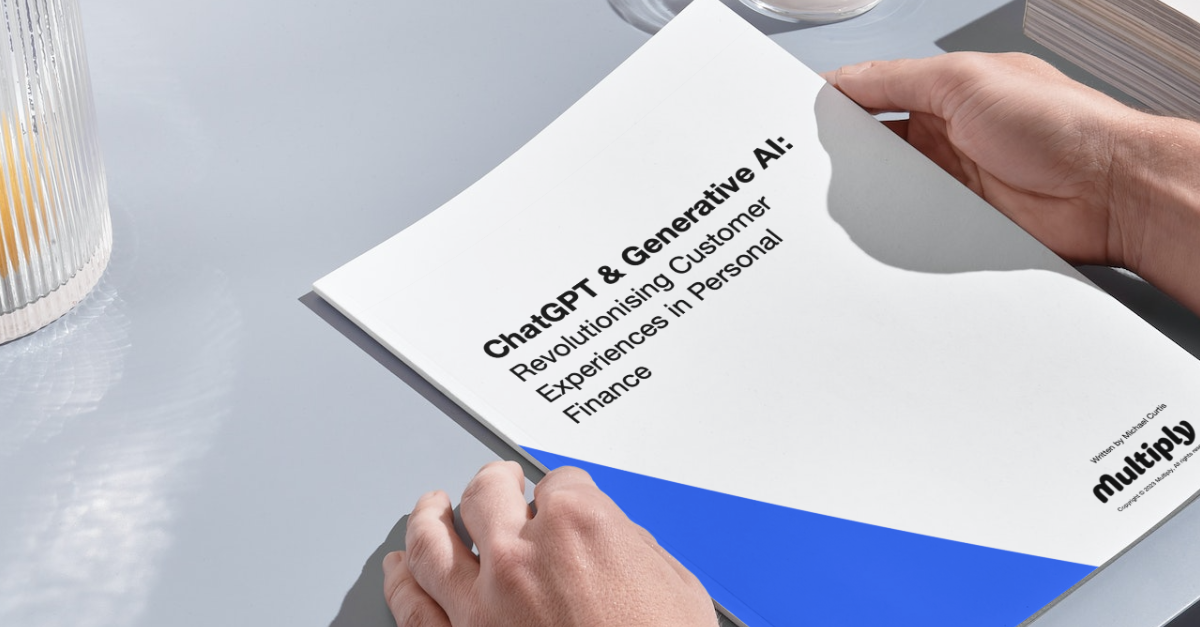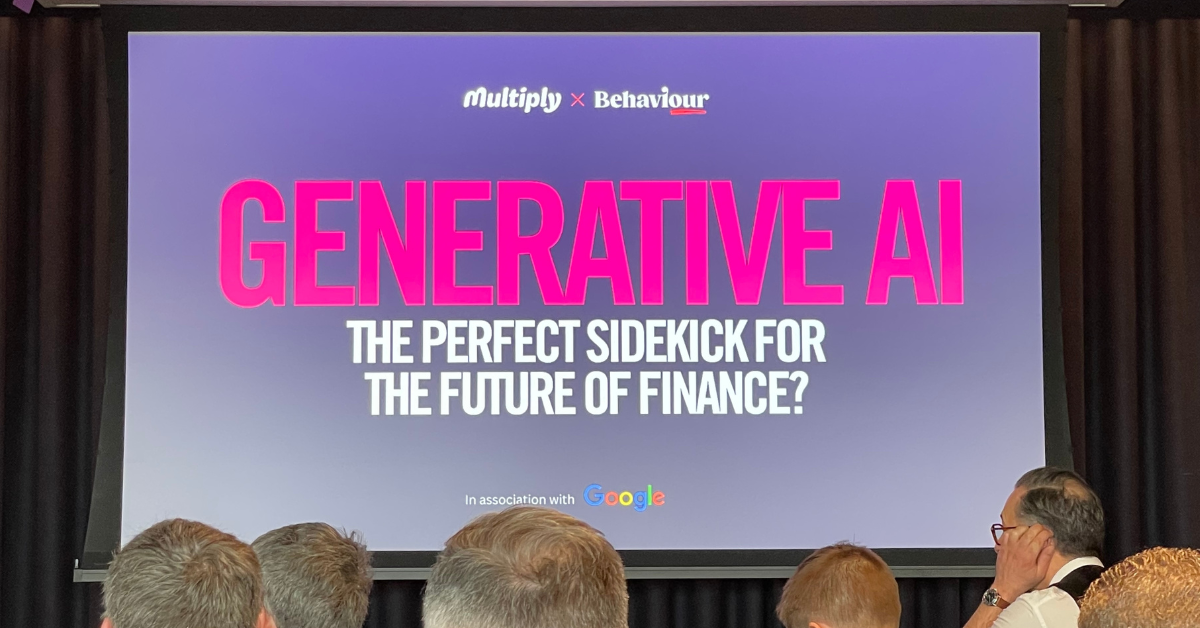Why AI is a content creator’s friend not a foe

It’s been over a decade since I graduated from University and got my first job in content.
In that time, I’ve seen the way we consume content change dramatically. We’ve gone from blogging to vlogging to TikToking, with the way we create content evolving along the way.
But despite the big changes in content consumption, little changed when it came to our toolkit.
Then along came ChatGPT.
Within seconds you can now create articles, emails, social media posts and scripts. Never before has content creation been so accessible and quick.
Our team of software engineers and product experts have been exploring the potential of this, and during our recent "Generative AI: The Future of Finance?" event we shared our vision. Which has since sparked quite a lively discussion.
As a content professional myself, I emphasise with this fear. Generative AI has the power to reshape content creation. But rather than seeing it as a threat, I think we should see it as an opportunity.
Bridging the content gap
I’ve worked in content teams with as many as five writers yet we’ve still not been able to meet the demands of our customers. The demand for content is insatiable - be it articles, newsletters, videos or podcasts - and what appeals to one demographic may not appeal to the other. You could call it a content gap.
Addressing this gap is key to giving customers all the information and support they need. And in ChatGPT and Google’s Bard, we now have the tools to create this content at scale.
Let’s take the Multiply Minute as a case in point. When we offered our advice B2C we produced a daily Multiply Minute newsletter summarising the key stories of the day, which detailed their relevance for people making financial plans.
It was one of the best things we ever did to engage our users. But it took at least an hour to produce between scouring the web for interesting content, assessing its relevance and writing the email.
With generative AI we’re now able to automate the whole flow without any human involvement, including personalising the stories and tone for each user. The result is more engaged customers making better decisions with their money.
Do I feel a little threatened by AI taking away a job that a person like me used to do? Sure. But just as the way technology has changed the way we consume content, it will change the way we create it. The world of content is dynamic and as content creators, we need to adapt to it.
I believe we’re heading into a future where us humans will increasingly become ‘content curators’, working with AI tools to create content that informs, educates and entertains our users. Contrary to the popular belief that AI will take content jobs I think in fact it could create new ones, as we work collaboratively with AI to bridge the content gap.
A complement, not a replacement
There are some areas where AI won’t be able to help us though. AI can’t investigate, scrutinise and hold the powerful to account. This is the realm of human journalists and writers, not Bard or ChatGPT.
At Multiply we all believe this - some jobs are just better done by humans - and we’re not in the business of putting journalists or writers out of a job.
Instead, we want to create AI tools that help content creators reach new audiences and become even better at their work. AI should complement, not replace, human creativity, with the focus forever being on improving the lives of our customers.
To this end we call upon the industry - fintechs, banks, magazines - to continue valuing and employing freelance writers. Generative AI should be seen as a valuable tool in a writer’s arsenal - not a like-for-like replacement for their role.
Likewise, we believe content creators should see AI as a friend rather than a foe, working with them to bridge the content gap.
Where do you stand on this topic? Let us know in the comments.


